ICHAD Student Research Fellows Author 7 Papers in High-Impact Peer Reviewed Journals
Five doctoral students and two MPH students affiliated with the International Center for Child Health and Development (ICHAD) at the Brown School at Washington University in St. Louis have published seven articles in high impact peer-reviewed journals.
Doctoral students in public health sciences, Dr. Samuel Kizito and Joshua Kiyingi, and social work doctoral students, Josephine Nabayinda, Jennifer Nattabi, and Flavia Namuwonge, together with MPH students Vicent Ssentumbwe and Edward Nsubuga, authored papers recently published in high impact peer-reviewed journals AIDS and Behavior, Journal of International AIDS Society, Plos One, Children and Youth Services Review and Global Social Welfare. Four of these students, Dr. Samuel Kizito, Josephine Nabayinda, Flavia Namuwonge, and Jennifer Nattabi, are McDonnell International Scholars and graduates of Makerere University, in Kampala, Uganda, a McDonnell International Scholars Academy university partner.
These papers utilized data from ICHAD’s various National Institutes of Health (NIH)-funded studies, including Suubi+Adherence, Kyaterekera Project, and Suubi4Her studies, which seek to address poverty and improve public health outcomes of children, youth and families in communities heavily affected by poverty and HIV/AIDS in Sub-Saharan Africa through economic empowerment interventions and promotion of behavioral health.
 Optimal antiretroviral therapy (ART) adherence is crucial for improved patient outcomes. However, ART adherence among adolescents living with HIV (ALHIV) is low; and the performance of various adherence measures among ALHIV is under contention. Dr. Samuel Kizito’s first paper published in the Journal of the International AIDS Society utilized longitudinal data from the Suubi+Adherence study to monitor ART adherence and compare self-report (SR) and Wisepill electronic monitoring (EM) performance in measuring ART adherence and predicting HIV viral load (VL) suppression among ALHIV. The study found that 64.3% of adolescents had suppressed VL. There was high agreement (78%) between both SR and EM in monitoring adherence to ART. Findings highlight the need for strategies for sustained optimal adherence. Specifically, while both SR and EM measure adherence with a similar precision; neither is an accurate predictor of virological outcome. As such there is still a need for an acceptable, feasible, and affordable method that predicts VL suppression within this group.
Optimal antiretroviral therapy (ART) adherence is crucial for improved patient outcomes. However, ART adherence among adolescents living with HIV (ALHIV) is low; and the performance of various adherence measures among ALHIV is under contention. Dr. Samuel Kizito’s first paper published in the Journal of the International AIDS Society utilized longitudinal data from the Suubi+Adherence study to monitor ART adherence and compare self-report (SR) and Wisepill electronic monitoring (EM) performance in measuring ART adherence and predicting HIV viral load (VL) suppression among ALHIV. The study found that 64.3% of adolescents had suppressed VL. There was high agreement (78%) between both SR and EM in monitoring adherence to ART. Findings highlight the need for strategies for sustained optimal adherence. Specifically, while both SR and EM measure adherence with a similar precision; neither is an accurate predictor of virological outcome. As such there is still a need for an acceptable, feasible, and affordable method that predicts VL suppression within this group.
Dr. Kizito’s second paper published in AIDS and Behavior examined the impact of a family-based economic strengthening intervention on school dropout and repeating a grade among ALHIV. Study findings indicate that the incidence of school dropout was higher among adolescents randomized to the group not receiving the economic strengthening intervention (13%) compared to those in the intervention group (9.6%). In addition, adolescents who received the intervention had 32% reduced risk for dropping out of school. Findings point to the potential of the economic strengthening intervention to reduce the risk of dropping out of school among ALHIV. Other Brown School student co-authors on these two papers are Josephine Nabayinda, Joshua Kiyingi, Flavia Namuwonge and Vicent Ssentumbwe.
 Economically vulnerable women engaged in commercial sex work (WESW) are disproportionately affected by HIV compared to women in the general population. Moreover, commercial sex is associated with a higher risk of contracting and transmitting HIV and other sexually transmitted infection (STIs). Joshua Kiyingi’s paper published in Plos One utilized data from the Kyaterekera Project to examine the prevalence and predictors of HIV and STIs among WESW in Southern Uganda. The study recruited 542 WESW (ages 18- 55) from major HIV hotspots. Study findings show a high prevalence of HIV (41%) among WESW –pointing to the need for WESW focused HIV and STI risk reduction interventions to reduce these burdens.
Economically vulnerable women engaged in commercial sex work (WESW) are disproportionately affected by HIV compared to women in the general population. Moreover, commercial sex is associated with a higher risk of contracting and transmitting HIV and other sexually transmitted infection (STIs). Joshua Kiyingi’s paper published in Plos One utilized data from the Kyaterekera Project to examine the prevalence and predictors of HIV and STIs among WESW in Southern Uganda. The study recruited 542 WESW (ages 18- 55) from major HIV hotspots. Study findings show a high prevalence of HIV (41%) among WESW –pointing to the need for WESW focused HIV and STI risk reduction interventions to reduce these burdens.
Mr. Kiyingi’s second paper published in AIDS and Behavior utilized data from the same study to examine the individual, family and economic level determinants of self-reported adherence to ART among WESW living with HIV. Results indicate that older age, education level, household size, family cohesion and financial self-efficacy were associated with “good” self-reported adherence to ART. Conversely, marital status, depressive symptoms, alcohol use, arrest history and household assets were associated with poor adherence to ART. Study findings point to the need to adapt a multi-level approach to address gaps in ART adherence among WESW. Other student co-authors on these two papers are Josephine Nabayinda, Flavia Namuwonge, Edward, Nsubuga, Samuel Kizito and Jennifer Nattabi.
 Consistent condom use has been identified as a cost-effective and widely acceptable strategy in preventing HIV transmission, specifically among WESW. Josephine Nabayinda’s paper published in AIDS and Behavior utilized data from the Kyaterekera Project to examine the individual, economic, behavioral, and health-related factors associated with consistent condom use among WESW. Study results indicate that alcohol and drug use, and multiple sexual customers, were associated with inconsistent condom use. In contrast, high levels of education, more household assets, multiple income earners in the household, knowledge on HIV and STI transmission, condom use self-efficacy and condom use communication were associated with using condoms consistently. Study findings point to the need to implement interventions that not only influence behavior change but also promote condom use among WESW. Other student co-authors on this paper are Joshua Kiyingi, Samuel Kizito, Flavia Namuwonge, Edward Nsubuga and Jennifer Nattabi.
Consistent condom use has been identified as a cost-effective and widely acceptable strategy in preventing HIV transmission, specifically among WESW. Josephine Nabayinda’s paper published in AIDS and Behavior utilized data from the Kyaterekera Project to examine the individual, economic, behavioral, and health-related factors associated with consistent condom use among WESW. Study results indicate that alcohol and drug use, and multiple sexual customers, were associated with inconsistent condom use. In contrast, high levels of education, more household assets, multiple income earners in the household, knowledge on HIV and STI transmission, condom use self-efficacy and condom use communication were associated with using condoms consistently. Study findings point to the need to implement interventions that not only influence behavior change but also promote condom use among WESW. Other student co-authors on this paper are Joshua Kiyingi, Samuel Kizito, Flavia Namuwonge, Edward Nsubuga and Jennifer Nattabi.
“ICHAD offers a conducive environment for me to thrive in my research areas. Every student research fellow has an opportunity to lead a publication. In addition, ICHAD’s many NIH-funded studies enable us to explore our potential in research. I’m grateful to my advisor, Dr. Fred Ssewamala, as well as Drs. Proscovia Nabunya and Ozge Sensoy Bahar, for their excellent mentorship,” said Joshua Kiyingi.
ICHAD is committed to training and supporting the next generation of scholars, as well as the dissemination of research findings to increase awareness and public support for interventions conducted at ICHAD; and to inform public policy and programming. Students worked closely with faculty mentors, Fred Ssewamala, Ozge Sensoy Bahar, Proscovia Nabunya, Mary McKay and other ICHAD’s faculty affiliates.
A list of recent students’ co-authored publications is provided below (student co-authors bolded) and on the ICHAD’s website here: https://ichad.wustl.edu/peer-reviewed-publications/. For more information, contact Laura Peer, lpeer@wustl.edu.
Publications authored by ICHAD research fellows:
- Kizito S, Namuwonge F, Brathwaite R, Neilands TB, Nabunya P, Sensoy Bahar O, Damulira C, Mwebembezi A, Mellins C, McKay MM, Ssewamala FM. Monitoring Adherence to Antiretroviral Therapy among Adolescents in Southern Uganda: Comparing Wisepill to Self-Report in predicting viral suppression. Journal of International AIDS Society. 2022 Sept 02. https://doi.org/10.1002/jia2.25990
- Kizito S, Nabayinda J, Kiyingi J, Neilands TB, Namuwonge F, Namatovu P, Nabunya P, Sensoy Bahar O, Ssentumbwe V, Magorokosho N, Ssewamala FM. The Impact of an Economic Strengthening Intervention on Academic Achievement Among Adolescents Living with HIV: Findings from the Suubi+Adherence Cluster Randomized Clinical Trial in Uganda (2012-2018). AIDS and Behavior. 2022 Sep 01. https://doi.org/10.1007/s10461-022-03838-8
- Kiyingi J, Nabunya P, Sensoy Bahar O, Jennings Mayo-Wilson L, Tozan Y, Nabayinda J, Namuwonge F, Nsubuga E, Kizito S, Nattabi J, Nakabuye F, Kagayi J, Mwebembezi A, Witte SS, Ssewamala FM. Prevalence and Predictors of HIV and Sexually Transmitted Infections among Vulnerable Women Engaged in Sex Work: Findings from the Kyaterekera Project in Southern Uganda. Plos One.2022;17(9):e0273238
- Kiyingi J, Nabunya P, Kizito S, Nabayinda J, Nsubuga E, Sensoy Bahar O, Jennings Mayo-Wilson L, Tozan Y, Namuwonge F, Nattabi J, Magorokosho N, Witte SS, Ssewamala FM. Self-reported adherence to antiretroviral therapy (ART) among women engaged in commercial sex work in Southern Uganda. AIDS and Behavior. 2022 Sept 06. https://doi.org/10.1007/s10461-022-03837-9
- Nabayinda J, Kizito S, Witte S, Nabunya P, Kiyingi J, Namuwonge F, Nsubuga E, Sensoy Bahar O, Jennings Mayo-Wilson L, Yang LS, Nattabi J, Magorokosho N, Ssewamala FM. Factors associated with consistent condom use among female sex workers. Lessons from Kyaterekera study in Southern Uganda. AIDS and Behavior. 10.1007/s10461-022-03833-z
- Byansi W, Namatovu P, Sensoy Bahar O, Kiyingi J, Nabayinda J, Mwebembezi A, Kivumbi A, Damulira C, Nattabi J, Namuwonge F, McKay MM, Hoagwood K, Ssewamala FM Family-level correlates of disruptive behavior challenges among children in Southwestern Uganda. Children and Youth Services Review. 2022 Sep 1; 140:106598.
- Nabunya P, Byansi W, Muwanga J, Sensoy Bahar O, Namuwonge F, Ssentumbwe V, Ssewamala FM. Family Factors and Gender Norms as Protective Factors against Sexual Risk-taking Behaviors among Adolescent Girls in Southern Uganda. Global Social Welfare. 2022 Aug 11. doi.org/10.1007/s40609-022-00237-8.

